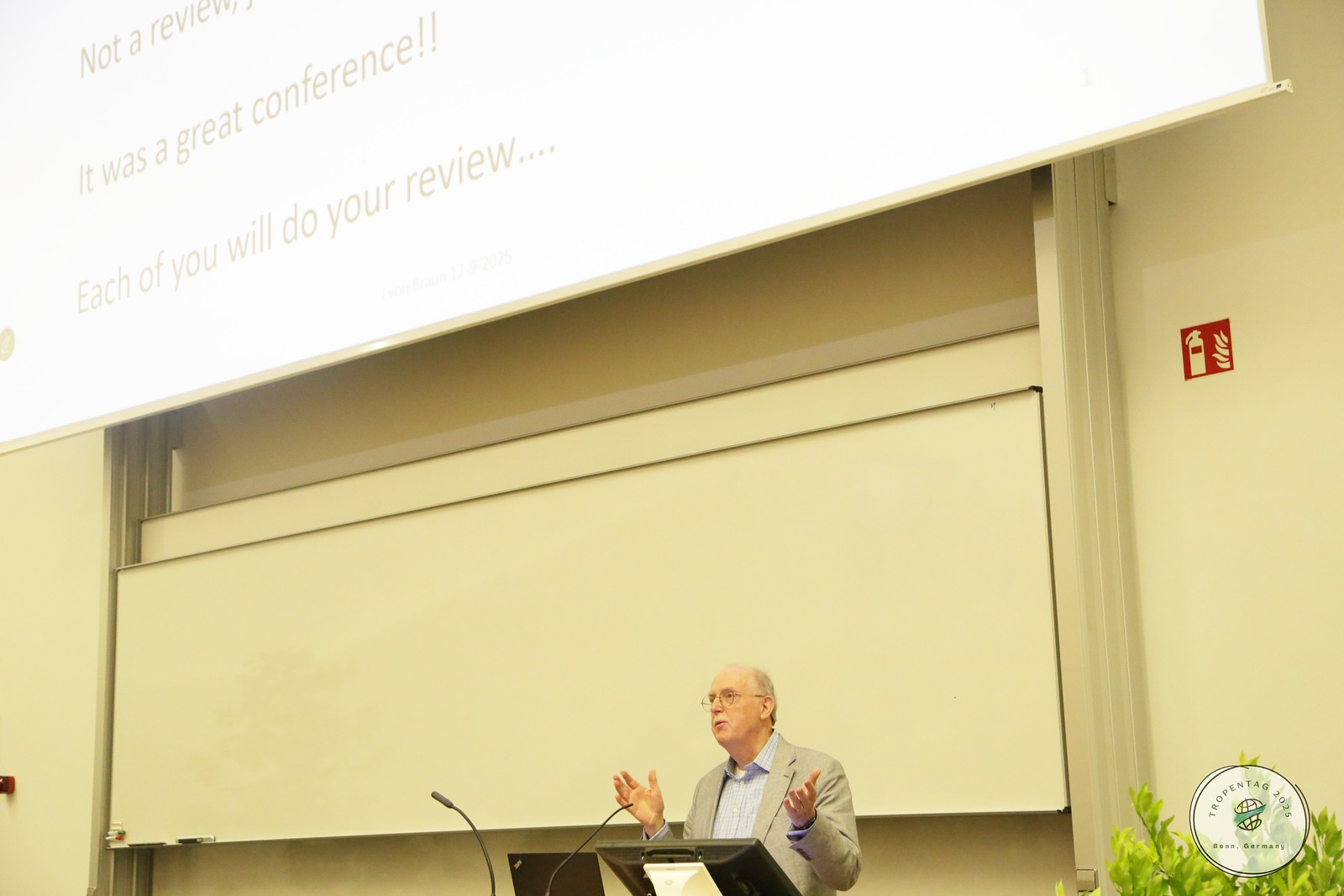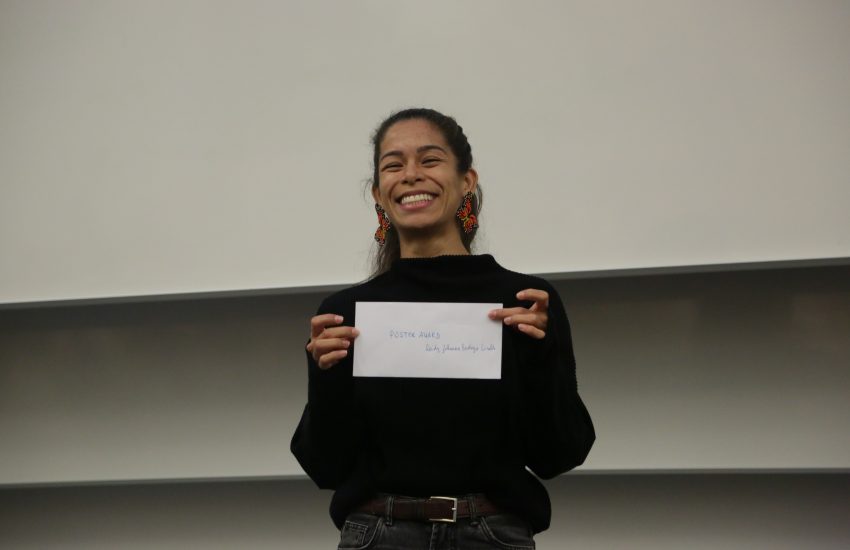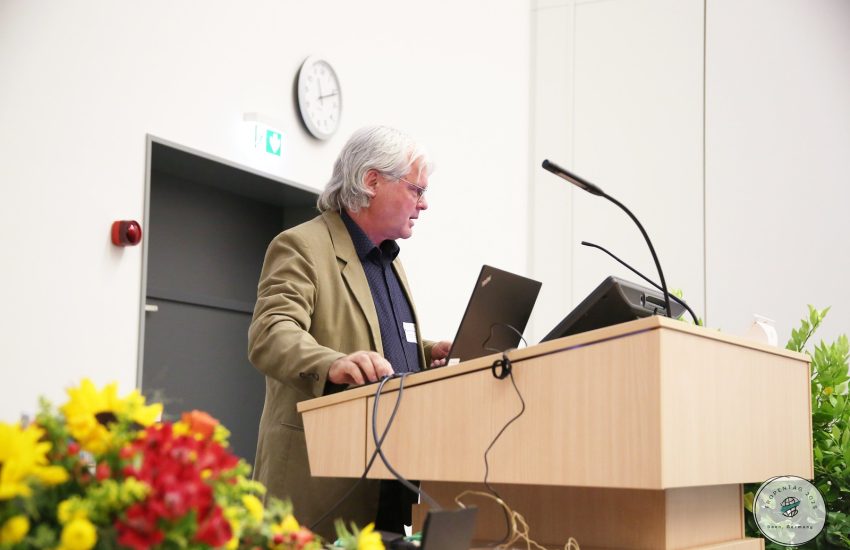What More Might Be Added at the Next Tropentag?
As the final session of Tropentag 2025 wound down, the room fell quiet when Prof. Dr. Joachim von Braun stepped up to the podium. Instead of a closing review, he offered the audience a challenge: “What may be more in addition at the next Tropentag?”
His call came in three clear strokes.
First, Prof. Joachim urged researchers to break out of the farm gate. Yes, Tropentag has long been strong on soils, seeds, and resource management, but, he argued, the next frontier is to link that work to food systems as a whole. Agriculture must be shown not only as production but also as nutrition, markets, consumption, and health. “From farm to food systems,” he stressed, is where relevance will grow.
Second, he pushed for a sharper look at trade-offs and synergies. Too often, he iterated, interventions are studied in isolation. A technology may boost yields but worsen equity; a practice may save water but cut incomes. The real task ahead is to see the interconnections; to study systems where gains and losses coexist, and where choices enhance justice as much as productivity.
Finally, Prof. Joachim lifted the debate beyond science. Land struggles, labor shifts, fragile markets, and even armed conflict—these global forces, he argued, must enter the Tropentag conversation. “Agriculture does not operate in a vacuum,” he reminded the room, “and neither should research.”
The message landed with weight. Around the hall, heads nodded, laptops closed, and the sense was clear: Tropentag will have to keep stretching to sustain its gains and maintain its relevance. From food systems to global insecurities, von Braun’s challenge was less a closing review than an opening dare; a reminder that the hard questions for agriculture are inseparable from the hard questions facing society.



